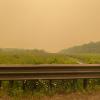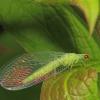Our newest fact sheet outlines key steps to reduce or eliminate pesticide use in municipal parks, campuses, and other urban greenspaces.
Across the country, energized community members are partnering with parks districts and campuses to plant flowers and save bees. Creating habitat is vital to reversing pollinator declines, and it’s highly compatible with many public spaces. At Xerces, we applaud the efforts of these dedicated pollinator advocates.
Just as important as providing flowers is making the commitment to protect pollinators from pesticides—including rethinking the routine applications of insecticides, fungicides, and herbicides to lawns, flowering trees, and ornamental beds. Our new fact sheet, Smarter Pest Management: Pollinator Protection for Cities and Campuses, outlines key steps to reduce or eliminate pesticide use in municipal parks, campuses, and other urban greenspaces.
These steps—part of an overall approach called Integrated Pest Management (IPM)—have been pioneered by San Francisco and Boulder, and successfully adopted by numerous other cities across the United States, even those that haven’t caught the pollinator bug yet. In some cases, cities and towns have turned to IPM to improve water quality or reduce the risk pesticides can pose to children. Indeed, there are many benefits to eliminating the underlying causes of plant diseases, weeds, and insect problems, rather than turning to pesticides.
Check out our fact sheet to learn more—and don’t forget to share it with those who manage and maintain land in your community!
Update, February 24, 2020: Xerces sends a huge thank you to the people of Mansfield, CT for their work to Bring Back the Pollinators. Mansfield recently passed a resolution that outlines key steps to support pollinators.The resolution declares the town of Mansfield a "Pollinator Friendly community" and outlines important steps to support thriving pollinator populations, including establishing more habitat, halting the use of neonicotinoids and other similarly toxic insecticides, and reaffirming the town's dedication to not using any pesticides for cosmetic reasons. Mansfield also hopes to influence other area landowners to follow suit—and here at Xerces, we hope other communities will consider taking similar action. We recommend referring to the Xerces Model Policy to Protect Pollinators from Harmful Pesticide Exposures to get started.
Further Reading
Smarter Pest Management: Pollinator Protection for Cities and Campuses.
Learn more about the Xerces Society’s work to reduce pesticide use and impacts.




